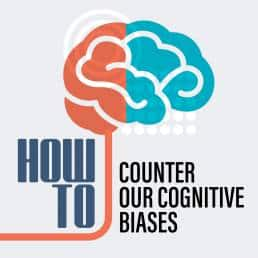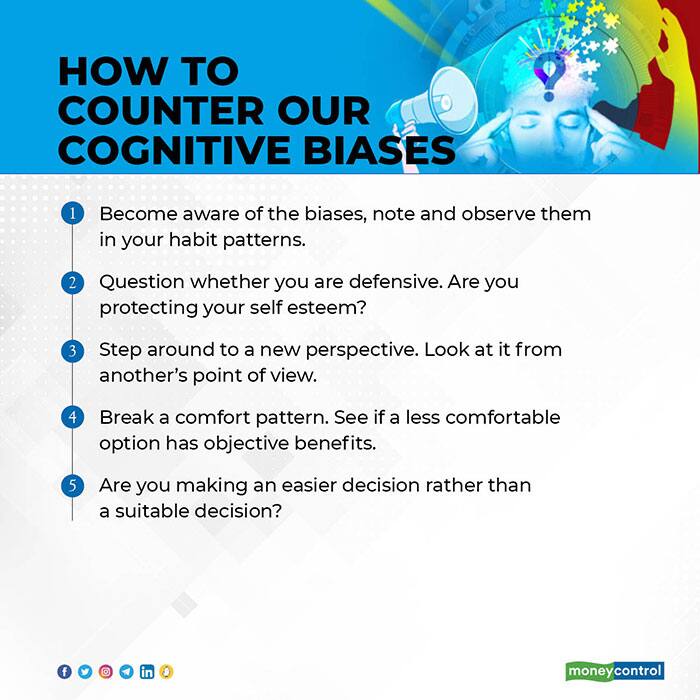



Note to readers: Healing Space is a weekly series that helps you dive into your mental health and take charge of your wellbeing through practical DIY self-care methods.
Fake news is nothing new by now, we’ve come to expect it in some form or the other. In the first wave of news coming out of Ukraine, there were great tales of heroism: The Ghost of Kyiv, the 13 martyred heroes of Snake Island, Russian claims of human shields. Then we heard other versions. By now we view everything emerging with some distrust. But what we have less understanding of is the way this constant exposure to fake news inhibits our capacity for critical thinking. We end up with cognitive biases, errors in ways of thinking that are subconscious and that influence our decision making.
 A conscious or explicit bias is when we are aware we are biased and are picking our side. In a wedding, no matter who is right or wrong, if you’re from the bride’s side, you’re going to stay on the bride’s side. It is our association of credibility with which side is saying it. You know fried snacks are delicious but you choose the steamed because you’re biased in favour of your health. Our cognitive biases, classified by Israeli psychologists Amos Tversky and Daniel Kahneman, are shortcuts we take to make decisions.
A conscious or explicit bias is when we are aware we are biased and are picking our side. In a wedding, no matter who is right or wrong, if you’re from the bride’s side, you’re going to stay on the bride’s side. It is our association of credibility with which side is saying it. You know fried snacks are delicious but you choose the steamed because you’re biased in favour of your health. Our cognitive biases, classified by Israeli psychologists Amos Tversky and Daniel Kahneman, are shortcuts we take to make decisions.
The first is confirmation bias. What you’re seeing validates what you already think. In this age that’s boosted by algorithms that use this bias. You buy self help books and the retail algorithm confirms to you that self help books are the most widely read. You have decided Ukraine is good and Russia is ‘bad’, so you see more news of Ukraine’s heroism and Russia’s depravity.
The second is hindsight bias. Looking back, you can say you saw it coming. When we watch a film about a historic massacre, we believe everyone saw it coming and could have predicted the outcome and therefore are culpable for not stopping what happened. We forget that in the moment, people were not seeing factors as interrelated or causally linked. Just as there may be things happening around us now disparately that we do not see are causing the next disease outbreak or a riot. In hindsight, we will see what triggered an event.
The third is self serving bias. Good things happened because of me, bad things happened because of external factors. All governments happen to suffer from this the most. A good harvest year in agriculture is because of government policy, a bad year is because of the monsoon’s failure. Self serving bias occurs when people are trying to protect their self esteem. Alternatively, you can take the blame for everything going wrong, a bad investment is your fault, but a windfall is ‘luck’ not your expertise, experience or calculated risk.
The fourth is anchoring bias. The anchor, the heaviest piece of information or the first that sets the tone, is what directs your decision. This is why once you’ve seen a shirt or dress you like, you’re likely to look through many more and return to it. This also happens in property purchases. Or investment. Your father always bought a certain stock so to you it is already invested with importance, so you always buy some of it, even if it is tanking.
 Availability bias is what comes to mind, the most dominant memory or association is what directs the action. Your boss always associates you with one mistake you made two years ago. You’re ‘that guy’. So when the promotion comes up, it goes to someone else because the information ‘available’ or accessible about you is dominantly negative.
Availability bias is what comes to mind, the most dominant memory or association is what directs the action. Your boss always associates you with one mistake you made two years ago. You’re ‘that guy’. So when the promotion comes up, it goes to someone else because the information ‘available’ or accessible about you is dominantly negative.
Inattentional blindness is when you’re not seeing what’s in front of your face. The best friend you’ve been in love with but you’re looking for love elsewhere. Your kids are looking for the remote and can’t see it’s on the table. Your specs are on the sofa and you’re looking everywhere. This is because your mind has already thought it must be somewhere else and specifically not in front of you.
We believe we make decisions organically and of course these biases have always existed. The difference is now technology has the capacity to amplify our biases, and therefore it is important to have a mindful awareness of how we navigate past these subconscious influences.

Discover the latest Business News, Sensex, and Nifty updates. Obtain Personal Finance insights, tax queries, and expert opinions on Moneycontrol or download the Moneycontrol App to stay updated!